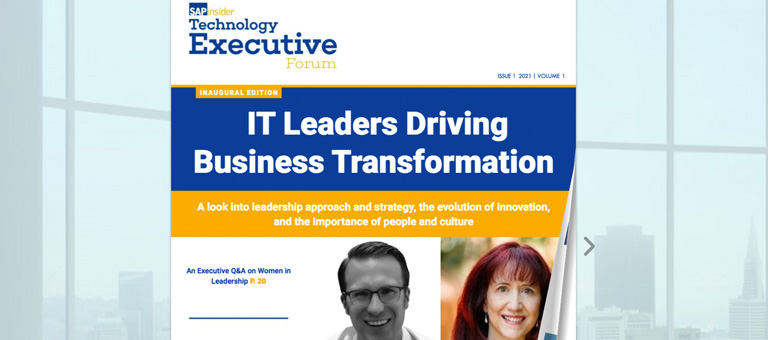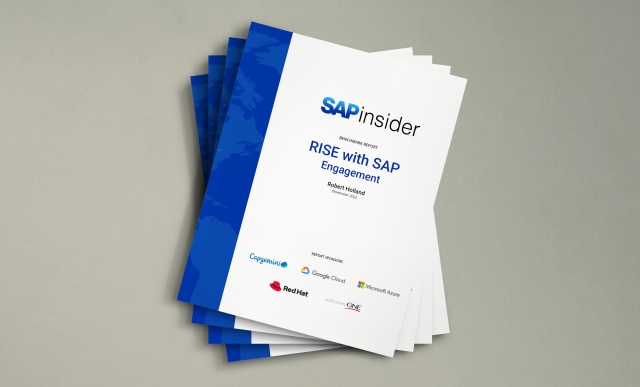Asia Pacific becomes cloud revenue driver for SAP in Q3
Meet the Authors
Key Takeaways
⇨ SAP reported a strong Q3 2024 performance, with the Asia Pacific and Japan (APJ) region seeing a 43% increase in cloud revenue, totaling €630 million.
⇨ The company's total revenue for Q3 rose by 11% to €1.21 billion, driven by significant growth in Japan, which contributed €370 million, a 25% increase.
⇨ SAP's current cloud backlog increased by 27% to €15.4 billion, emphasising the importance of large deals, which accounted for over 60% of order entries during the quarter.
SAP has announced a strong Q3 performance for 2024, in which Asia Pacific and Japan (APJ) emerged as the fastest growing region for cloud revenue for SAP in the quarter and year-to-date.
In the third quarter, the APJ region’s cloud revenue in constant currency increased by 43% to €630 million, while its cloud and software income rose by 12% to €1.09 billion.
The region’s total revenue at constant currency in Q3 rose by 11% to €1.21 billion, with Japan’s share in the region growing by 25% to €370 million with the rest of APJ increasing by 6% to €845 million.
Explore related questions
In Q3 2024, SAP customers worldwide chose RISE with SAP for their end-to-end business transformation. Many of these customers were from the Asia Pacific and Australia and New Zealand (ANZ) regions, including Japan Airlines, Energy Queensland, and Cox Automotive Australia. Brisbane, Australia-based The Pool Tile Company chose GROW with SAP, to adopt cloud ERP for its business growth, in one example from the ANZ region.
“SAP continues to deliver impressive growth and innovation,” Anna Kositsyna, General Manager, Energy, Natural Resources and Public Sector at SAP wrote on Linkedin following SAP’s earnings news. “[SAP is] an organization that’s delivering strong results and making a meaningful impact for our customers, especially in APJ and ANZ.”
SAP’s Q3 performance in full
Q3 saw SAP’s current cloud backlog increase by 27% at constant currencies to €15.4 billion while total revenue was up 10% at constant currencies to €8.5 billion. Cloud revenue, which increased by 27% at constant currencies to nearly €4.4 billion, accounted for more than half of total revenue and 59% of cloud and software revenue.
As has been the case for several quarters, no specific adoption numbers were mentioned by SAP in the third-quarter earnings call. However, Christian Klein, SAP’s Chief Executive Officer, mentioned on multiple occasions that only a quarter of customers have started their transformation journey to SAP S/4HANA.
Taking into consideration that around half of all SAP S/4HANA customers are net new and that there are approximately 25,000 customers who have licensed the offering, over 35,000 customers are still to make any move off their existing SAP ECC, SAP Business Suite, or even SAP R/3 deployment.
Klein and Dominik Asam, Chief Financial Officer, focused on the benefits of a cloud ERP bundle in general and RISE with SAP specifically. Klein also mentioned that RISE with SAP has finally become the methodology offering that he always aspired it to be. Based on the SAP Activate deployment and implementation methodology, this methodology includes best practices from customer implementations and a new generative AI-powered assistant that can help manage projects. The RISE with SAP methodology includes guided onboarding, partner competency requirements, an integrated tool chain that supports different phases of the methodology, and the ability to define target architectures accurately.
While recent coverage speculates that RISE with SAP adoption is extremely poor, this quarter’s earnings call did not address the topic. However, Asam highlighted that deals exceeding €5 million made up more than 60% of the order entry for the quarter.
SAP needs this growth in large deals to continue ramping up cloud revenue and the current cloud backlog. But this may mask that an equivalent, or smaller, number of deals are being closed even while they are providing additional revenue. Given that SAP is focused on a “land and expand” sales policy where they start with small deals that can then grow significantly, deals to large customers with complex environments can have a significant revenue impact.






